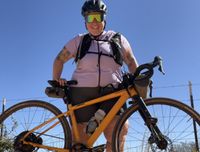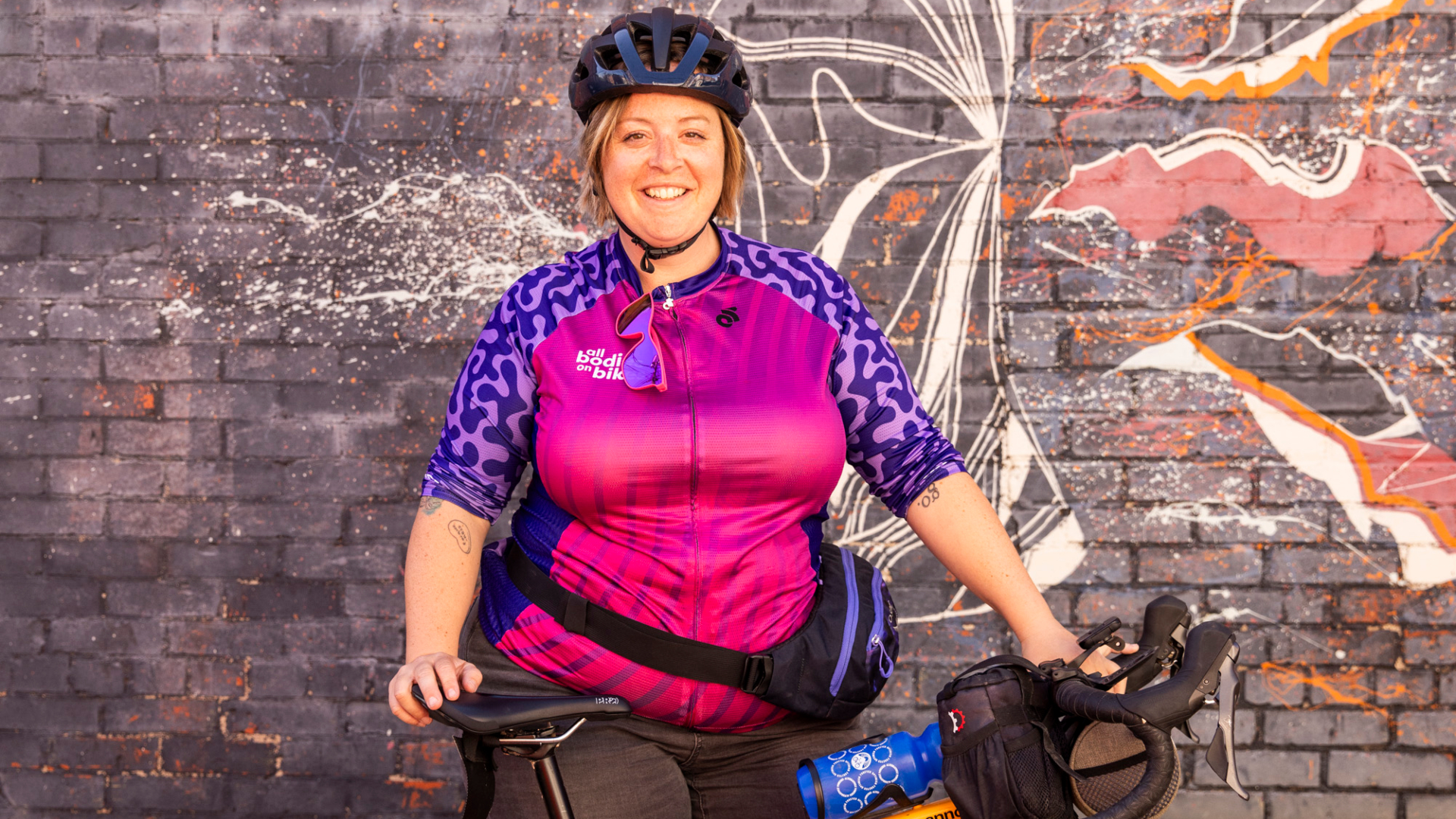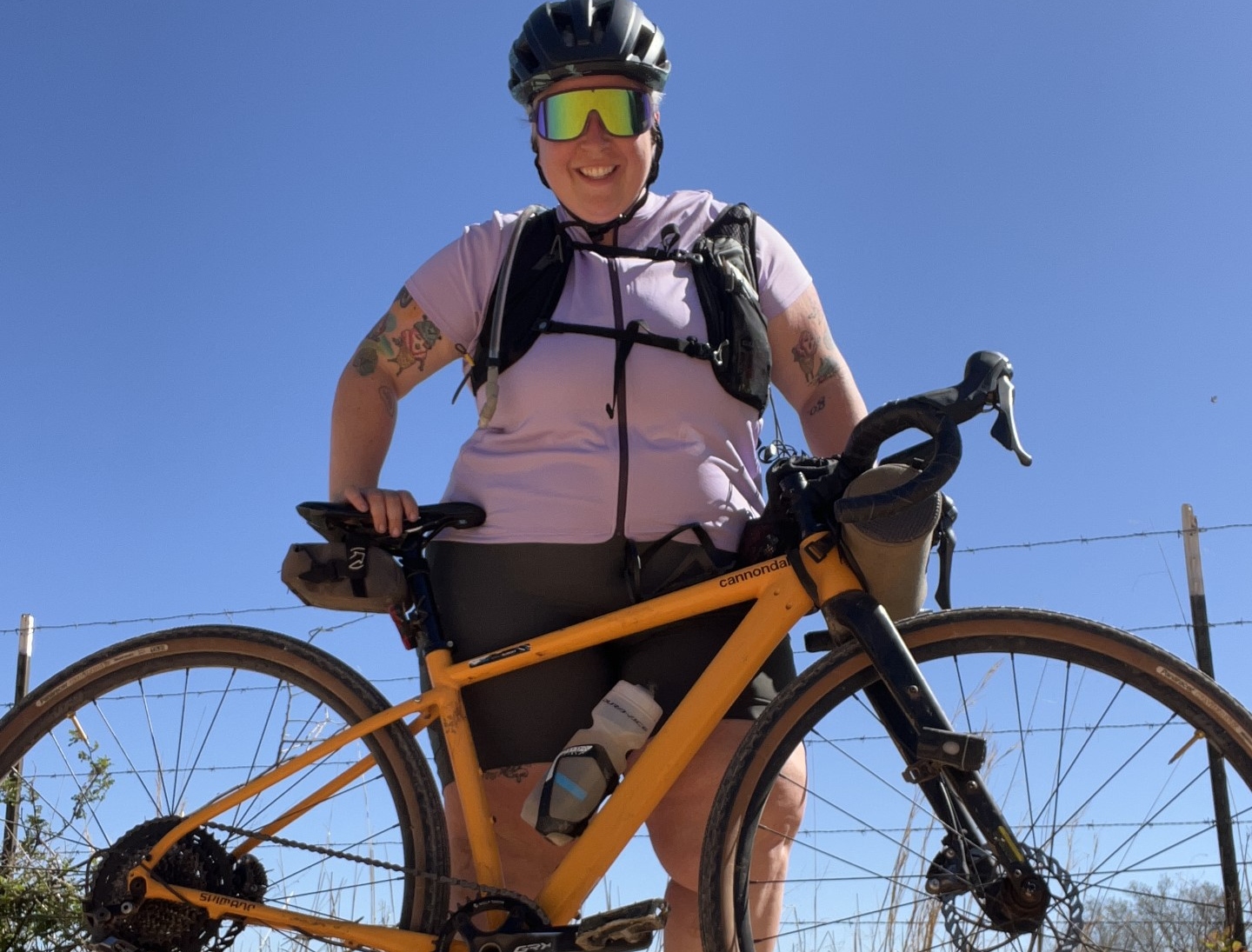Lip service isn't good enough: here's what needs to change for cycling events to actually be inclusive
Concrete steps events should be taking for a more inclusive ridership


The latest race content, interviews, features, reviews and expert buying guides, direct to your inbox!
You are now subscribed
Your newsletter sign-up was successful

Cycling Weekly contributor Marley Blonsky is a paid athlete, the co-founder of the All Bodies on Bikes movement, a podcast host, model, advocate and consultant. She has also tackled some of the biggest events in North America, including Unbound and MidSouth Gravel. Blonksy is fiercely passionate about a more inclusive cycling world. The advice offered here are her personal suggestions, gleaned by her years in the bike world and attendance of many events. These key actions were arranged in no specific order.
Find Blonsky's other columns, here.
Inclusion is all the buzz these days, with seemingly event after event claiming to “be inclusive.” But what does it take to put on a truly inclusive event? I’ve been lucky to attend more than my fair share of events - from gravel races to charity rides to cyclocross races (and many more) - and seen a wide spectrum of inclusion efforts. Read on for my take on the key actions that make an event actually inclusive and do more than just lip service.
Financial Grants or Assistance
Attending cycling events is not cheap, with travel, lodging, food, and registration fees often totaling over a thousand dollars. To help offset this, I recommend that events offer some sort of financial assistance in the form of a scholarship or travel stipend.
Event organizers can get creative in how this is funded, with many events finding success by offering other participants a way to help fund these scholarships through a donation during registration. Other options include working with brand sponsors to help provide gear, food and travel to those in need. Lowering financial barriers to entry helps ensure a wider diversity of attendees, including age, family status, and income level.
Keep Aid Station and Finish Lines Open for as long as Possible
There’s nothing more frustrating than pulling up to an aid station and realizing they’ve already packed up all the nutrition before you got there. Except maybe getting to the finish line and having all the celebrations be over. As more people of various paces take on cycling challenges, there will be a continued need for aid stations and finish lines to stay open longer. While I realize this creates extra demand for volunteers and longer hours for event organizers, to ensure all participants have a good experience, this should be the norm. Events like MidSouth Gravel have even incorporated a party for the last place finisher into their programming, celebrating all finishers regardless of pace.
If there is a cutoff time, this should be clearly communicated to participants, including the minimum speed they must maintain to make that cutoff time.
Size-Inclusive Swag
If I had a dollar for every event I went to where I didn’t fit into their jerseys, I’d have enough to buy myself a fancy dinner. Far too often the swag that is available at events maxes out an XL or XXL, leaving those of us in bigger bodies left out and wishing we had the choice to purchase a jersey.
I understand that finding a vendor who makes inclusive sizing for custom jerseys can be challenging, however, they do exist. A great option if inclusive sizing isn’t available through your vendor is to offer additional swag items that are not sized - bandanas, water bottles and hats are good options.
The latest race content, interviews, features, reviews and expert buying guides, direct to your inbox!
Inclusion of ParaCycling Categories
When the course allows for it, paracycling needs to be a registration option, with options for support riders to accompany paracyclists who need it. There should also be special attention paid to accessibility at the event, including accessible restrooms (including at aid stations), access to the awards podium stage, and access at expos or social events if those are part of the event.
Meg Fisher, multi-time Paracycling World Champion and Paralympian, noted that due to the nature of paracycling and all the various accommodations needed, there will be instances where full inclusion is not possible, such as at a downhill enduro race. While not ideal, her advice is to start somewhere, as some efforts towards inclusion are better than none.
Create Affinity Spaces for Marginalized Riders
Carving out a specific space for marginalized riders, including BIPOC (Black, Indigenous, and People of Color), women, and gender non-conforming folks can be a great way to foster community and build inclusive spaces. These affinity spaces - consciously organized opportunities for marginalized groups to come together - can be as casual as a meetup or shakeout ride, but their impact will go a long way.
Inclusion of Gender Expansive/Non-Binary Categories WITH equal prize podiums and media coverage
It’s widely recognized that many people fall outside of the gender binary, identifying as non-binary, transgender, gender queer and many additional identities. Ensuring that there are registration options for folks who identify as something other than “Male” or “Female” is the first step, however, to truly be inclusive, events must also ensure the Non-Binary categories have equal prize purses to the male and female categories, AND are included in media coverage.
Conclusion
Creating an inclusive event takes a lot of intentional work and listening to the needs of your community. The good news is that there are community organizers who are available to help consult on building inclusive spaces. Reach out to people like Rachel Olzer, Executive Director of All Bikes Welcome, Meg Fisher, Paracyclist and advocate, and Devin Cowens, Executive Director of Radical Adventure Riders Atlanta.
My best advice is to start somewhere, ask questions, and to not be afraid of making changes.

Marley Blonsky is a fat adventure cyclist, co-founder of All Bodies on Bikes, co-host of the All Bodies on Bikes podcast, curve model, advocate, and consultant. Marley is fiercely passionate about size inclusion, believing that everyone deserves full access to life - including at work, in sport, and at home.